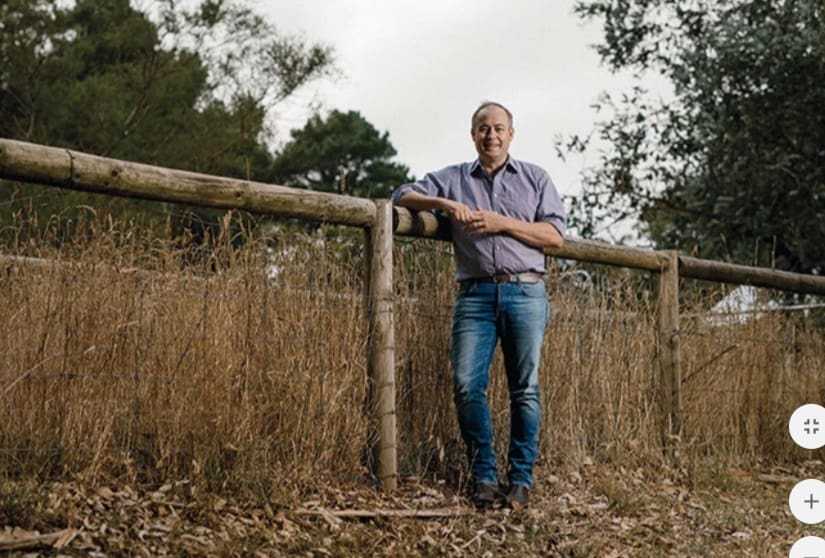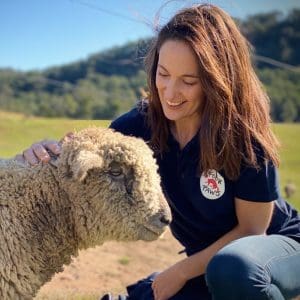
AWI CEO John Roberts: mulesing is a policy matter and AWI is prohibited from taking positions, but it supports mulesing.
AUSTRALIAN Wool Innovation has been called out on its lack of targets on mulesing, non-mulesed wool production and sheep welfare, in an animal welfare group submission to the Australian National Audit Office.
A joint Humane Society International, RSPCA and FOUR PAWS submission to the ANAO audit into AWI has stated the grower levy and Federal Government-funded company is not strategising, setting appropriate targets, tailoring activities nor measuring its performance to meet global demand for non-mulesed wool.
The ANAO is examining AWI’s management, governance and performance under its Statutory Funding Agreement with the Federal Government. The audit has closed for contributions and a report is being prepared for tabling in April 2023.
The performance principles in clause 10.2 of the SFA include that AWI engage stakeholders to identify RD&E priorities and activities that provide benefits to the industry and ensure its RD&E priorities and activities, including marketing, are strategic, collaborative and targeted to improve profitability, productivity, competitiveness and preparedness for future opportunities and challenges through a balanced portfolio.
The groups contend that despite the many indications that the future of wool production is non-mulesed, including auction and contract price premiums, AWI appears to lack mechanisms for quantifying that demand and gauging the wool industry’s capacity to supply adequate volumes of non-mulesed wool.
AWI chief executive officer John Roberts has told Sheep Central he agrees with the welfare bodies’ assessment that AWI does not have targets relating to mulesing or sheep welfare in its 2022-2025 strategic plan, such as a target for the industry to supply a certain percentage of non-mulesed wool by a given date, and for a portion of that to be certified non-mulesed wool.
“That is correct.
“AWI does not and will not tell growers how to manage their sheep,” Mr Roberts said.
“That is a policy matter and we are prohibited from taking policy positions.”
AWI ‘prohibited from taking policy position’, but has a mulesing position
However, in the AWI-commissioned Wool 2030 strategy document, Pillar 1 in the report’s ‘Pillars of success’ is ‘Caring for our animals and the environment’ which stipulates that “Growers have the confidence and tools to manage flystrike without mulesing’, presumably by 2030.
And in an August 2022 Flystrike RD&E Technical Forum, The Woolmark Company sustainability manager Emma Gittoes also said AWI doesn’t set policy or commitments for growers in the industry, yet a panel outlining the ‘AWI position’ on mulesing states that: “Mulesing remains important for the sustainability of the Australian wool industry because it remains a key lifetime sheep welfare tool for woolgrowers.
“In the absence of an equally effective alternative to surgical mulesing for many woolgrowers, AWI supports the option of mulesing with anaesthesia and analgesia to reduce life long risk of breech strike,” the panel read.
“AWI continues to invest in research, development, education, extension and communication towards reducing the reliance on mulesing.”
The animal welfare groups also told the ANAO that AWI’s ‘targets’ for ‘sheep health and welfare’ in its annual report are vague and do not accurately measure their performance in supporting the industry to supply adequate volumes of non-mulesed wool.
Mr Roberts said: “AWI’s role is to support all Australian wool growers.”
The animal welfare bodies claimed that AWI’s flystrike extension program operating plan for 2022-2023 doesn’t measure grower uptake of flystrike management techniques that don’t involve mulesing, despite the Wool 2030 statement referring to managing flystrike without mulesing by 2030 and a recommendation to ‘leverage the Wool 2030 Strategy to align [its] RD&E focus to industry strategic priorities.’
Mr Roberts said AWI does align its RD&E focus with industry strategic priorities.
“AWI provides information to growers on how to manage flystrike that can be done in a variety of ways.”
AWI failing to futureproof the wool industry – HSI

FOUR PAWS’ Jessica Medcalf: AWI should communicate between wool growers and brands about market expectations on animal welfare.
HSI’s animal welfare law & policy campaigner Martine Lappan said AWI is failing to futureproof the wool industry by taking a clearer direction towards better welfare and non-mulesed wool.
“AWI is simply not strategising effectively, setting appropriate targets, tailoring its activities, or measuring its performance to support the wool industry to meet the global demand for non-mulesed wool, despite that being within AWI’s remit under its statutory funding agreement.
“The future is clearly non-mulesed, and AWI needs to act swiftly to make sure Australia doesn’t get left behind,” she said.
FOUR PAWS animal welfare in fashion expert Jessica Medcalf said Australian wool growers are hitting an information wall when it comes to hearing about the increased calls from textile brands and their need for mulesed-free wool.
“Since FOUR PAWS launched its Brands Against Mulesing list in 2020, over 300 brands have now been included.
“In our discussions with Australian wool growers, they are often shocked at the groundswell of brands now calling for non-mulesed wool,” she said.
“And this is on peak wool industry bodies like AWI; they should be openly communicating between wool growers and brands about new market expectations when it comes to animal welfare.”
Ms Medcalf said Australia’s dominant position in the luxury fibre market is not guaranteed.
“Meeting consumer demands for animal welfare is simply good business and can help to safeguard Australia’s industry for future generations.”
RSPCA Australia’s senior scientific officer (farm animals Melina Tensen said it is incumbent on AWI to monitor and assess market demands and gauge the wool industry’s ability to meet these demands.
“We are concerned that AWI is not meeting these performance principles in relation to non-mulesed wool, despite many hundreds of brands and retailers making the switch to non-mulesed wool and the community demonstrating time and time again that they care about the responsible sourcing of wool and are concerned about painful procedures such as mulesing.
Ms Tensen said RSPCA Australia welcomed AWI’s annual operating plan for 2022-2023 indicating ‘priority investments’ are the development of a flystrike extension program to train growers and agriculture advisors in moving to a non-mulesed enterprise.
“We urge AWI to also measure growers’ uptake of flystrike management techniques that don’t involve mulesing (on top of what is currently being measured, such as workshop frequency and feedback).
“We support AWI’s efforts in relation to a flystrike extension program but this program needs to ensure that real change is happening on the ground, to help put an end to the suffering that lambs experience because of painful procedures like mulesing.”
Click here to read the full HSI, RSPCA, FOUR PAWS ANAO submission.
Click here to read the AWI-Federal Government Statutory Funding Agreement.
Click here to read the Wool 2030 Strategy.
Click here to read the AWI Strategic Plan 2022-2025.
Click here to hear the AWI Flystrike RD&E Technical Forum presentation by Emma Gittoes.

We proved about 15 years ago that mulesing could be phased out by genetic selection for animals with low dag, breech wrinkle and wool coverage scores. They are referred to as ‘Easy Care’ sheep.JK